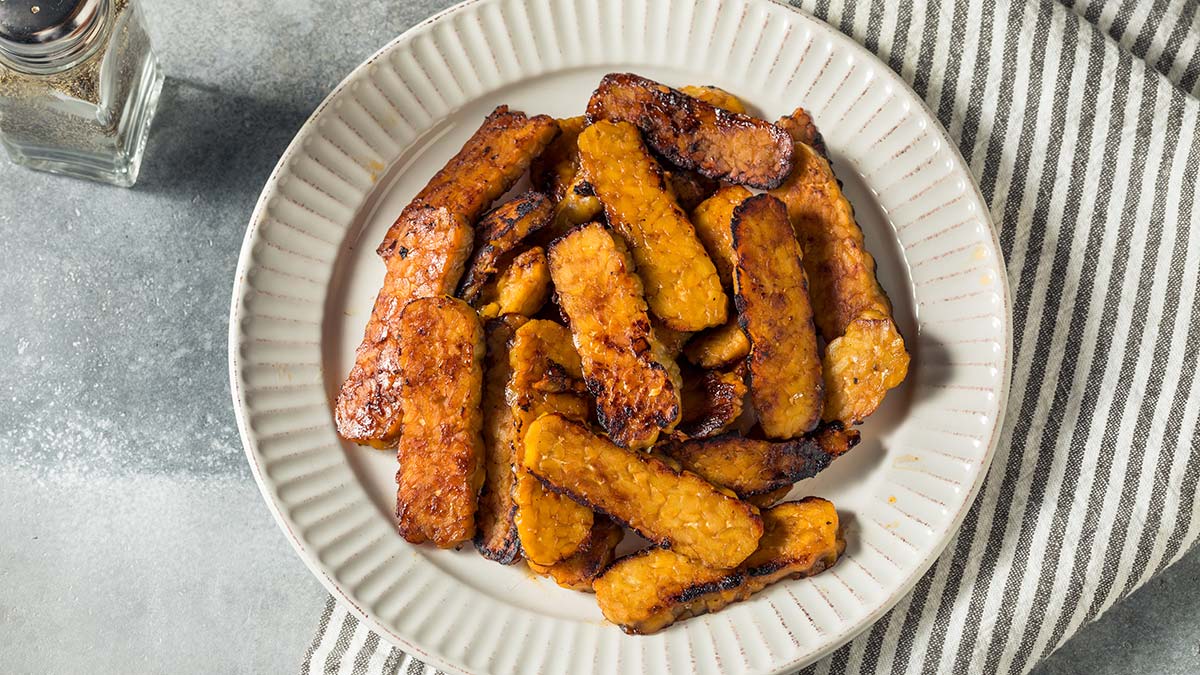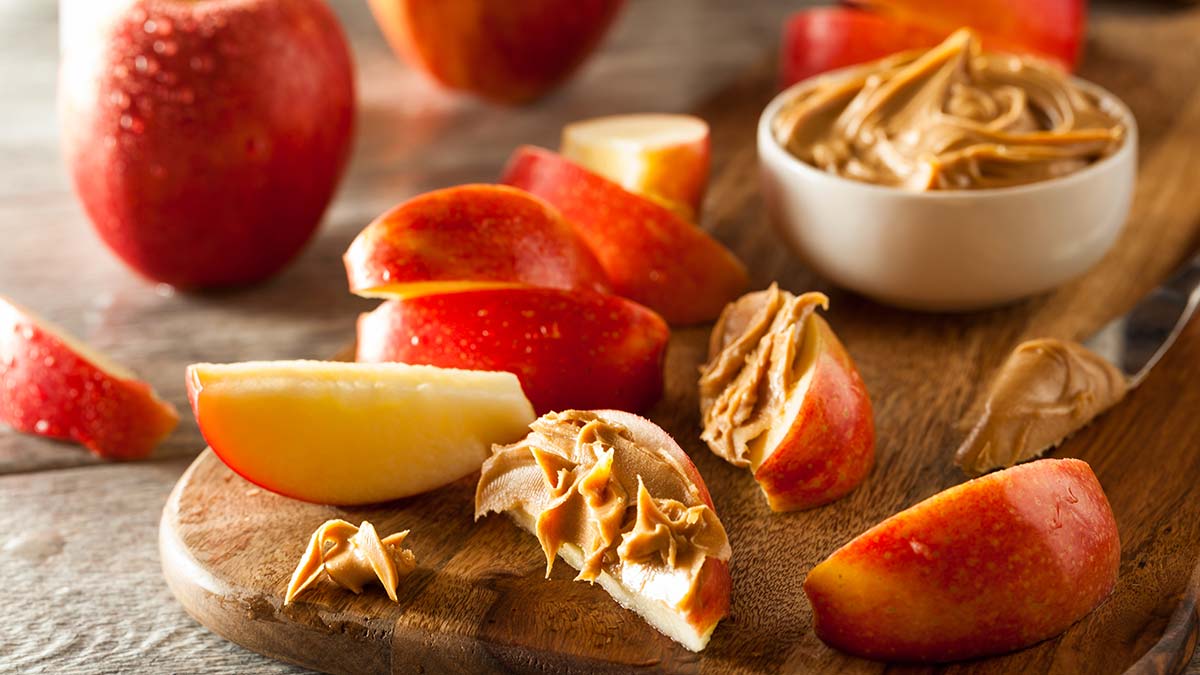Postpartum Nutrition: How Protein Can Help You Recover After Childbirth

If you’re reading this, chances are you’ve recently given birth. We’ll also take a wild guess that while you’re currently in the thick of changing nappies and navigating sleepless nights, you’re probably wondering how you can best support your body after childbirth.
Whether you had a vaginal birth or a C-section, labour can take a huge physical toll on the body, and fully recovering from the fourth trimester can take many months. Experts say that one of the best ways we can assist this natural healing process is through good nutritional choices.
If you’re a regular gym-goer that’s already familiar with the concept of hypertrophy (the technical term for the process of building muscle), you’ll know that protein is an essential component for repairing and rebuilding torn tissue after a big session. Handily, the same principle applies after childbirth, with your body requiring plenty of nutrients, including heaps of protein, to heal efficiently.

What exactly is protein?
Think of protein as the raw material your body uses to maintain and rebuild itself after physical activity, trauma or injury. These vital molecules are made up of smaller building blocks called amino acids, which are essential for forming tissues like muscles, skin and bone.
Like carbohydrates and fat, protein is a macronutrient, which means you need relatively large amounts of it in your diet to stay healthy.
Alongside healing and repair, protein plays a key role in producing both enzymes and hormones, which are important for everyday bodily functions after giving birth. Some proteins like haemoglobin transport oxygen in the blood, while others help to replace worn-out cells.
Why is protein important in the fourth trimester?
Women are generally given lots of advice about what they should eat and avoid during pregnancy, but post childbirth, things often aren’t so clear-cut.
Your body has gone through a major upheaval, so good nutrition – including lots of protein – becomes a key piece in the healing process. Not only do the amino acids in protein aid the repair of tissues torn or wounded during birth, but studies have found that they can also support the immune response and increase serotonin production, helping to regulate your mood when you’re running on little sleep.
Traditionally, our dietary distribution of macronutrients is around 40 to 60% carbohydrates, 25 to 30% fat and 15 to 20% protein, but a 2024 study found that protein needs drastically increase during all phases of wound healing by up to 250%.
In the weeks after labour, hormones are also peaking and crashing and need time to recalibrate. Since the amino acids in protein are the foundation for hormones like insulin, growth hormone, and thyroid hormones, boosting your protein intake becomes even more important to help everything settle.
On top of this, women who are breastfeeding need roughly 400-500 extra calories per day to support milk production. As some high-protein foods like nuts and seeds can often be calorie-dense, loading more of them on your plate can help you to hit these nutritional goals when you’re low on time and energy.
5 easy tips to increase your postpartum protein intake

Snack on crispy baked tempeh bites
Tempeh, like tofu, is a soy-based product originally hailing from Indonesia. This fermented food is available from most health food shops and contains a whopping 31 grams of protein in a one-cup serving. That’s roughly on par with the protein content in a cup of ground beef.
For a quick energy hit that’s easy to prepare while your baby is sleeping, try slicing a block of tempeh into small squares, coating it in tamari and nutritional yeast, and baking it in the oven until crisp and golden.
Keep cooked edamame in the fridge
Delicious hot or cold, a cup of Japanese edamame contains around 18.5 grams of plant-based protein. These tender soybeans are typically boiled or steamed until soft and are often served as a light snack with a sprinkling of salt.
You’ll typically find fresh edamame bean pods in local vegetable markets, but many supermarkets now sell convenient bags of the shelled beans in the freezer aisle. Preparing them is as simple as throwing them into a pot of boiling water for around five minutes. From here, they can last in the fridge for around three to five days if stored in an airtight container.

Slather peanut butter on apple slices
Peanut butter is praised for its high protein content and for good reason too: one small serving of this moreish spread provides around 7 grams of the good stuff.
For a simple protein-based snack that you can enjoy while breastfeeding, spread peanut butter onto chopped fruit slices like apple and banana. We recommend opting for natural, whole peanut butter over processed varieties, as these can contain high amounts of added sugar and salt.
Throw a can of chickpeas into a salad
When you’re in the throes of parenting a new baby, it can be difficult to find time to prepare balanced, nutritional meals. Simply tossing a can of chickpeas into a bowl of salad leaves and adding a dash of olive oil and balsamic vinegar can make a delicious side dish that’s easy to throw together between feeds.
As a can of chickpeas typically contains around 15 grams of protein, these golden beans will be your best friend on those low energy days where sleep is limited. As an added bonus, chickpeas also pack a high-fibre punch to support postpartum digestion.
Add a protein shake into your morning ritual
While you should always strive to get your nutritional needs from your diet alone, the reality is that you might not always have time to prepare balanced meals – and that’s especially true in the busy weeks after giving birth.
A protein powder can be an easy and convenient way to top up your protein levels while you’re recovering from labour. Form’s Vegan Performance Protein has 30 grams of plant-based protein in one serving, to help you meet your daily nutrient needs.
Whizz it into smoothies with fresh fruits and ice or add a scoop to your shaker with water for an easy morning boost. No prep time? No problem.


















